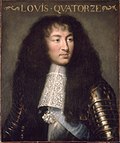Wikipedia:2012 main page redesign proposal/Chris G
|
Welcome to WikipediA |
The free encyclopedia that anyone can edit. |
In the news

- A cholera outbreak in Sierra Leone is declared a national emergency following the deaths of more than 300 people.
- At least 36 people are suspected dead after Hurricane Isaac (satellite image pictured) strikes the Gulf Coast of the United States, Lesser Antilles, Greater Antilles and the Bahamas.
- The opening ceremony of the Summer Paralympic Games is held in London.
- An Israeli court rules that the Israel Defense Forces and the Ministry of Defense were not responsible for the death of Rachel Corrie in the Gaza Strip in 2003.
- More than 2,000 people riot in Mombasa, Kenya, in reaction to the shooting death of Muslim cleric Aboud Rogo.
- Colombian President Juan Manuel Santos announces the commencement of peace talks with the rebel group Revolutionary Armed Forces of Colombia.
Today's featured article
"Amazing Grace" is a Christian hymn written by English poet and clergyman John Newton (pictured) and published in 1779. Based on Newton's personal experiences at sea (in the Royal Navy and the slave trade), it was originally written in 1773 and published in Newton and Cowper's Olney Hymns in 1779. Although it became relatively obscure in England, in the United States it was commonly used during the Second Great Awakening. The original tune, if any, is unknown, but it is now most commonly sung to the tune "New Britain". It conveys a message that forgiveness and redemption are possible regardless of the sins people commit, and that the soul can be delivered from despair through the mercy of God. One of the most recognizable songs in the English-speaking world, it has been called "the most famous of all the folk hymns", having been recorded thousands of times during the 20th century and becoming emblematic in African American spiritual music. (more...)
Recently featured: Simon Bolivar Buckner – History of Michigan State University – John Martin Scripps
On this day...
September 1: Start of the Liturgical year in the Eastern Orthodox Church; Constitution Day in Slovakia; Independence Day in Uzbekistan (1991)
| 1715 | Louis XIV of France (pictured), the "Sun King", died after a reign of 72 years, longer than any other French or other major European monarch at the time. |
| 1804 | German astronomer Karl Ludwig Harding discovered one of the largest main belt asteroids, naming it Juno after the Roman goddess. |
| 1862 | American Civil War: Confederate forces attacked retreating Union Army troops at the Battle of Chantilly during a rainstorm in Chantilly, Virginia, but the fighting ended up being tactically inconclusive. |
| 1914 | The Passenger Pigeon, which once had a population of at least 3 billion birds, became extinct, when the last individual died in captivity. |
| 1969 | A bloodless coup d'état led by Muammar Gaddafi overthrew Idris I of Libya. |
| 1972 | American chess grandmaster Bobby Fischer became the 11th World Chess Champion when he defeated Russian Boris Spassky in a match that was widely publicized as a Cold War confrontation. |
Did you know...
- ... that the shipwreck of HNLMS De Ruyter (pictured) went missing, leaving only an imprint on the ocean floor?
- ... that NFL player Dustin McDonald was later a labor leader who led strikes and was jailed for fighting the police?
- ... that the death of a pregnant woman in a video game was written to be even darker on television?
- ... that Joe Eddins helped conservative Oklahoma enact universal preschool?
- ... that Olive Garden and Chili's got in a ship war over Destiel?
- ... that William F. J. Ryan designed more than 1,000 coats of arms for bishops, dioceses, and institutions?
- ... that the cover art for Jane Remover's debut album is a screenshot taken from Google Maps?
- ... that the "Tiger-Rider" is said to have miraculously flooded his village with alcohol?
- ... that "Na Na Na (Na Na Na Na Na Na Na Na Na)" contains 261 "Na"s in total?
Today's featured picture

|
Igor Stravinsky (17 June 1882 – 6 April 1971) was a Russian composer and conductor, considered to be one of the most important and influential composers of the 20th century. He studied under Nikolai Rimsky-Korsakov until the latter's death in 1908. Soon after, Stravinsky met the impresario Sergei Diaghilev, who commissioned the composer to write three ballets for Ballets Russes: The Firebird (1910), Petrushka (1911), and The Rite of Spring (1913), the last of which caused a near-riot at its premiere in Paris. His compositional style varied greatly, being influenced at different times by Russian folklore, neoclassicism, and serialism. His ideas influenced Aaron Copland, Philip Glass, Béla Bartók, and Pierre Boulez, who were all challenged to innovate beyond traditional tonality, rhythm, and form. This photograph of Stravinsky in the early 1920s is from the collection of the American photojournalist George Grantham Bain. Photograph credit: Bain News Service; restored by MyCatIsAChonk
Recently featured:
|
| Wikipedia Encyclopedia |
Wikinews Open journalism |
Wiktionary Dictionary & thesaurus |
Wikibooks Textbooks & manuals |
Wikisource Source texts | |||||
| Wikiquote Quotations |
Wikispecies Species directory |
Wikiversity Learning tools |
Commons Free media |
Meta-Wiki Coordination |
This Wikipedia is written in English. Many other Wikipedias are available; some of the largest are listed below.
-
1,000,000+ articles
-
250,000+ articles
-
50,000+ articles





